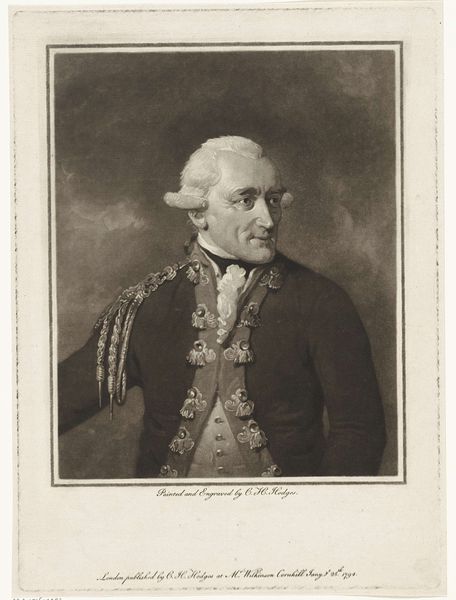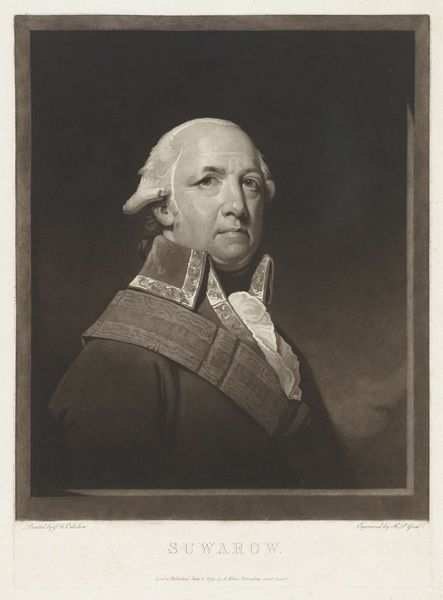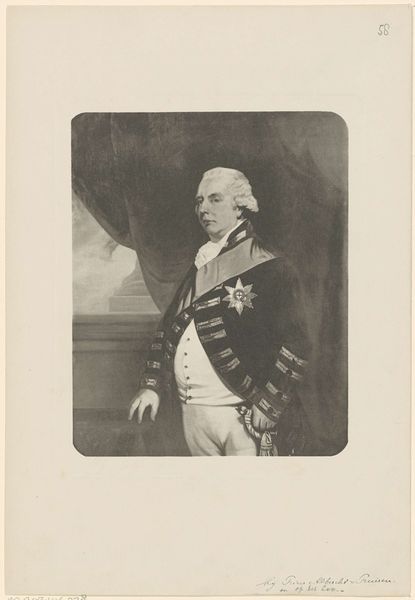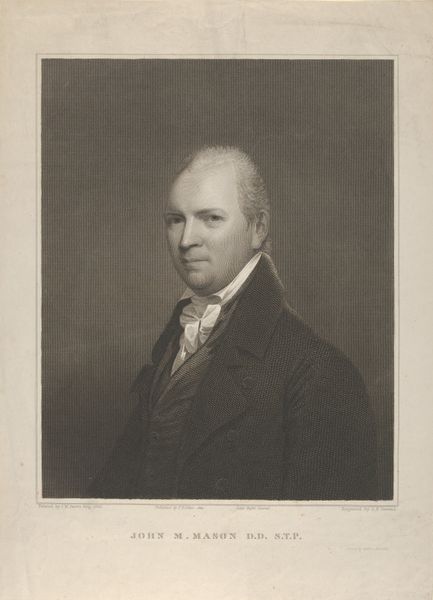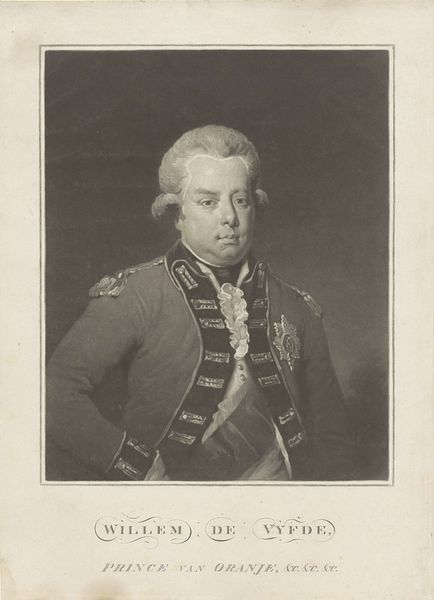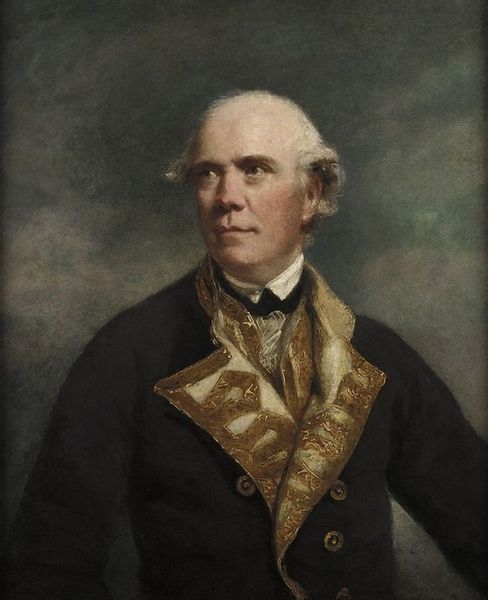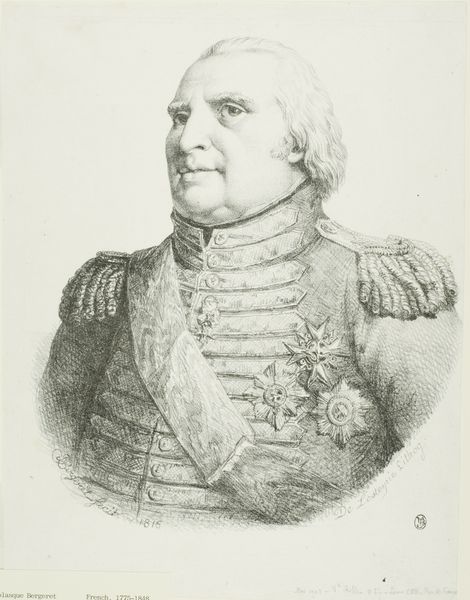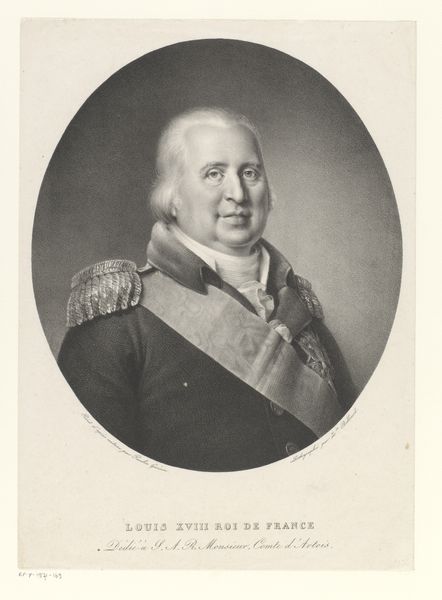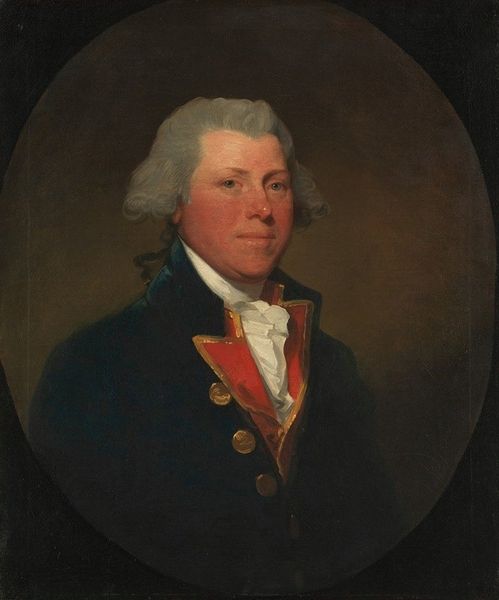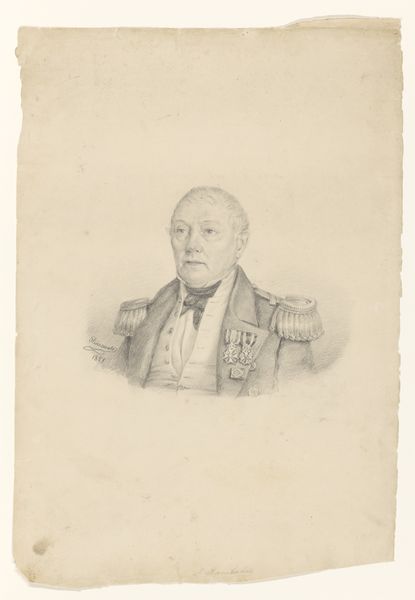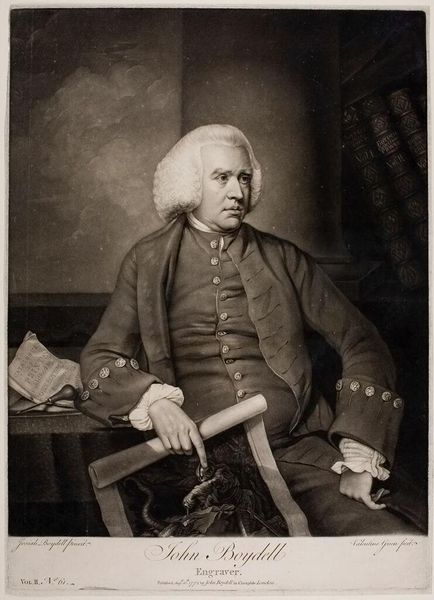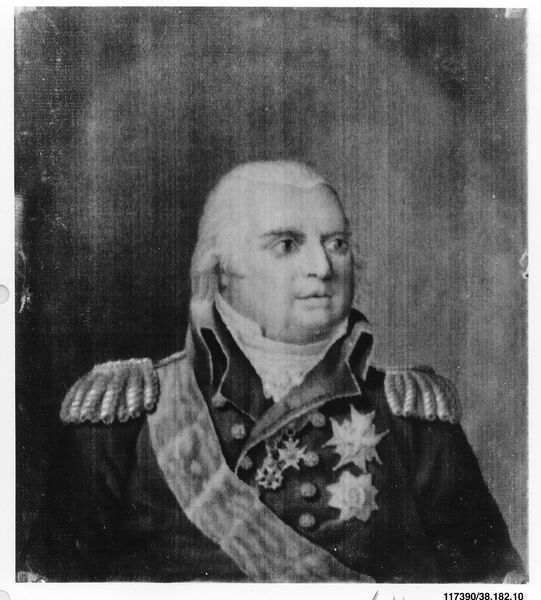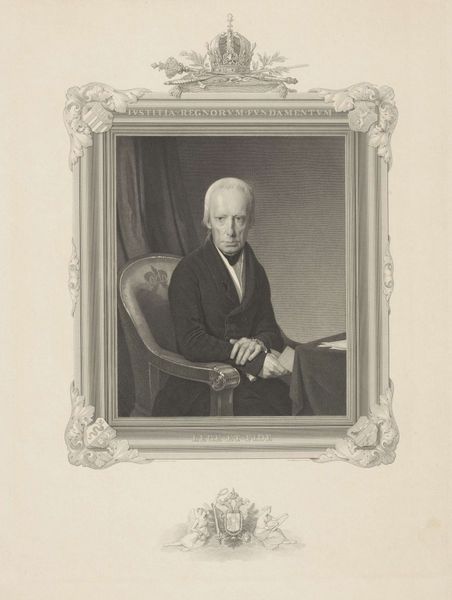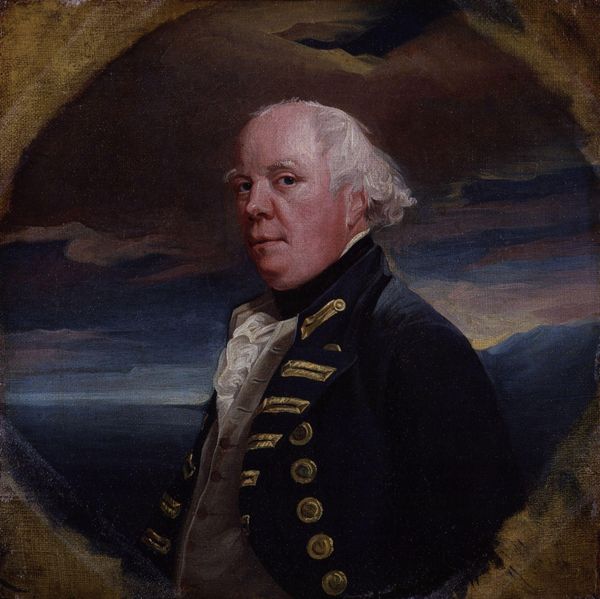
engraving
#
portrait
#
neoclacissism
#
charcoal drawing
#
historical photography
#
19th century
#
line
#
portrait drawing
#
history-painting
#
engraving
Dimensions: height 406 mm, width 280 mm
Copyright: Rijks Museum: Open Domain
Editor: This is "Portret van Patrick Duff," created in 1791 by Charles Howard Hodges, currently held at the Rijksmuseum. The work is an engraving, and I find its somber tone quite compelling. The way the subject's gaze meets yours is striking. How do you interpret this work, especially given its formal qualities? Curator: Focusing purely on its formal qualities, we observe a strategic use of light and shadow to create depth. Note how the engraver’s meticulous lines delineate form and texture, giving volume to Duff’s face and uniform. The linear precision reflects Neoclassical ideals, evident not just in the subject matter but in its method. Editor: The uniform is what grounds my interpretation - its immaculate detail gives the work a specific identity and authority. It's interesting to see such weight carried in an engraving. Curator: Exactly! This leads us to contemplate the function of line in creating structure. The engraving's composition adheres to classical portrait conventions, but Hodges introduces dynamic tonal variations with sophisticated scratching and stippling. Can we say that the lines give the artwork depth, while at the same time containing the scene within its bounds? Editor: Absolutely. It’s amazing how the lines not only create form, but almost a feeling. Is that Neoclassical influence, too? Curator: Precisely. It reflects the philosophical underpinnings of the era: Reason, order, and clarity, expressed visually through controlled line work. Considering semiotics and these structural elements, the sword might symbolize power, not necessarily aggression. Editor: That's a perspective I hadn't considered. Viewing it from a formalist lens really highlights the depth of even seemingly straightforward pieces. Curator: And that's what's great about a formalist reading. By concentrating on shape and composition and line, a new reading comes into view, even outside of what it represents.
Comments
No comments
Be the first to comment and join the conversation on the ultimate creative platform.
